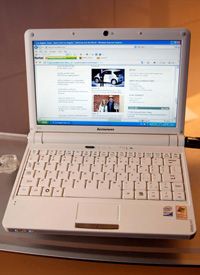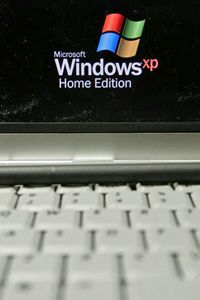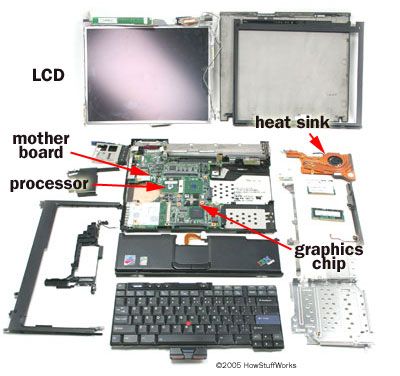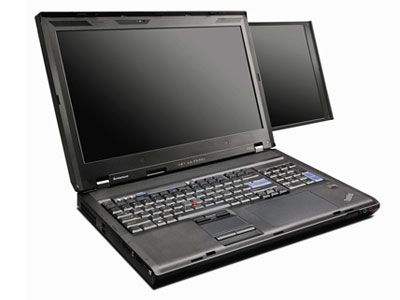Computer manufacturers are constantly tweaking their laptop designs to grab the attention of consumers. For years, these companies have been making portable computers smaller, lighter, and more powerful -- and they've been particularly successful with a new category of ultra-portable PCs called netbooks.
Netbooks are tiny laptop computers. Or are they just a larger version of a smartphone? They resemble miniature laptops, with small displays and keyboards, but they don't have some of the features that come standard on full-blown laptops. They're not made to help you communicate via voice, as with a smartphone, but they can help you complete many of the same on-the-go tasks.
Advertisement
Regardless of the comparisons you choose to make, netbooks are, quite simply, a hot item. As of this writing, they account for more than 20 percent of all new portable computer sales, and most pundits predict those numbers will only grow stronger [source: Schonfeld].
The sagging global economy means consumers and their corporate employers have less cash to blow on technology, so full-blown and pricey desktop-replacement laptops topping $2,000 suddenly seem more expensive than ever. And with portability and efficiency always top of mind, big laptops can be awfully unwieldy, anyway.
The extreme cost-effectiveness of netbooks (roughly $300 to $500) means they're cheaper than almost any brand-new laptop you'll find at retail outlets. Popular models that start around $300 include the ASUS Eee, Toshiba Mini, Acer Aspire One and HP Mini. Their portability means you can throw them into a small carry bag and take your work with you anywhere you go.
As their name implies, netbooks primarily help you connect and complete work on the Internet. In a nutshell, this probably explains why netbooks are catching on with so many people. No one really wants to use a tiny smartphone's keypad or touchscreen to compose a lengthy e-mail or write a business report. But few people want to blow a month's salary on a powerhouse laptop brimming with features they don't need.
Read on to see more about the specs that constitute a netbook and how these nifty niche PCs are beginning to revolutionize the world's digital workflow.
Advertisement



